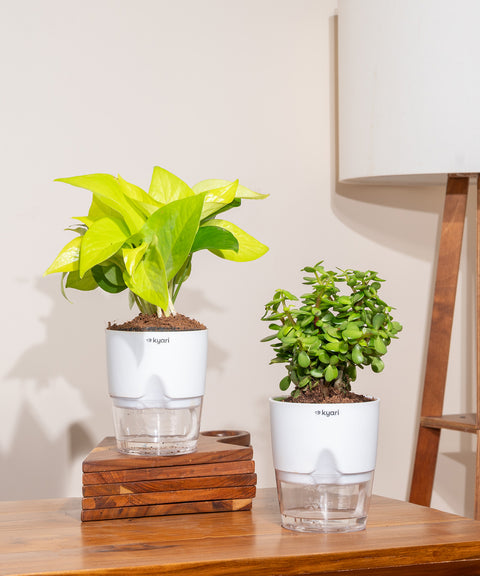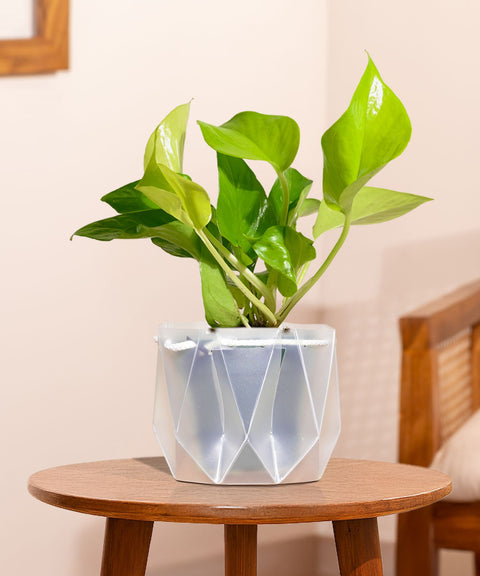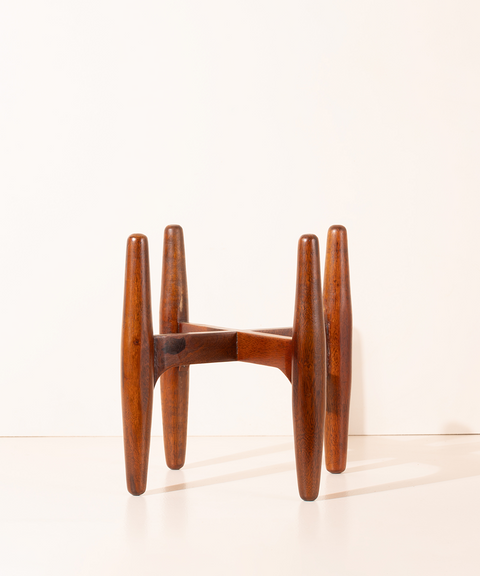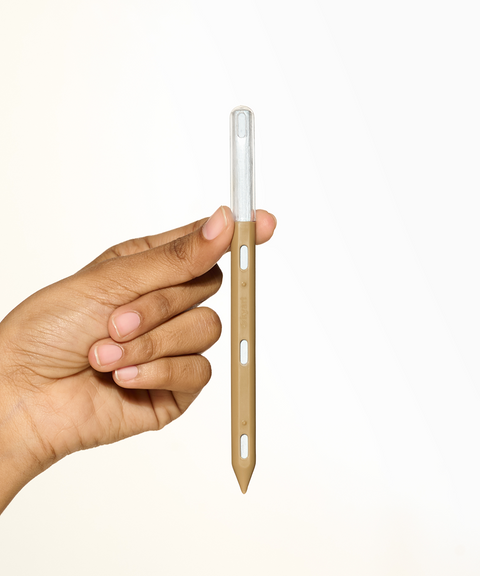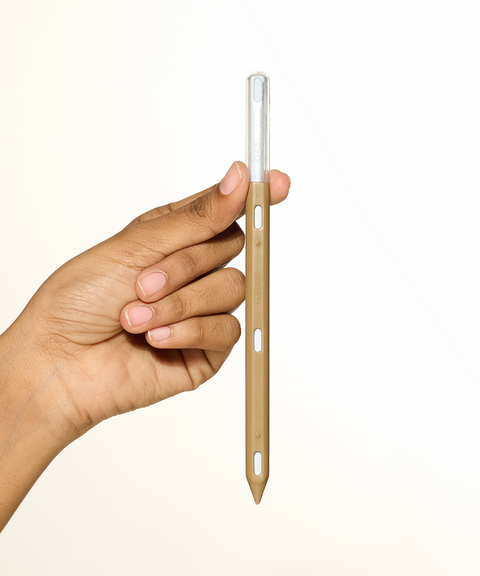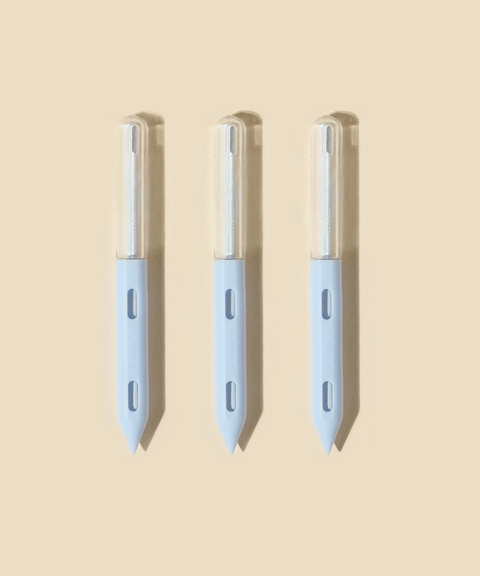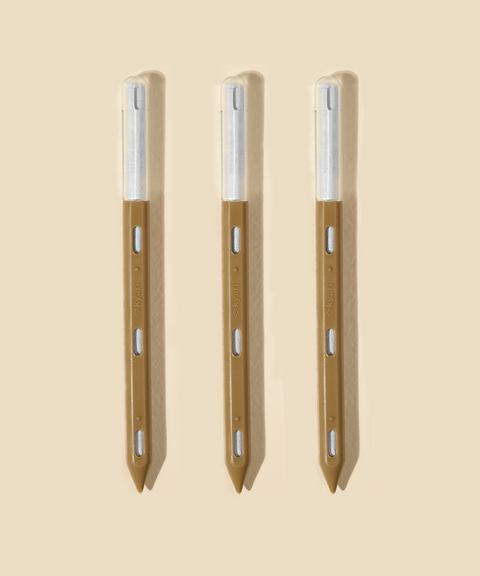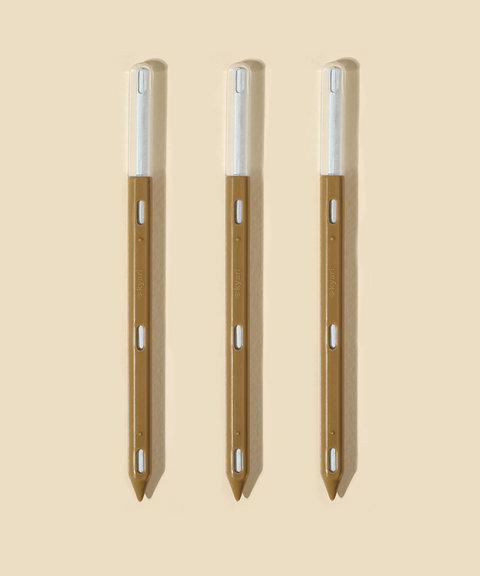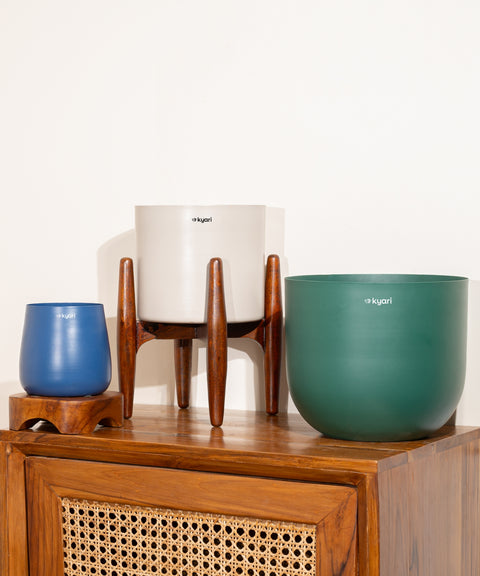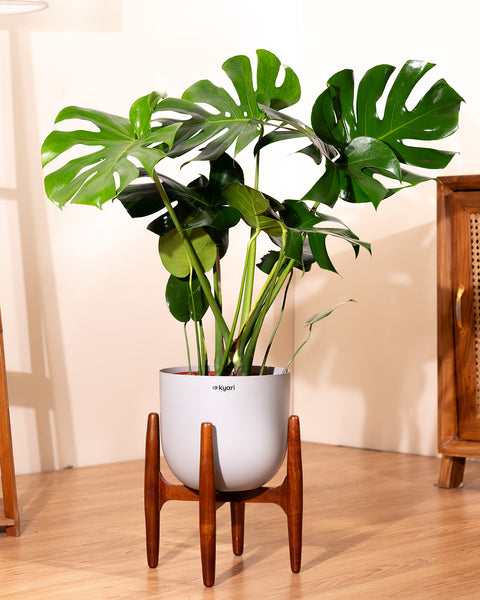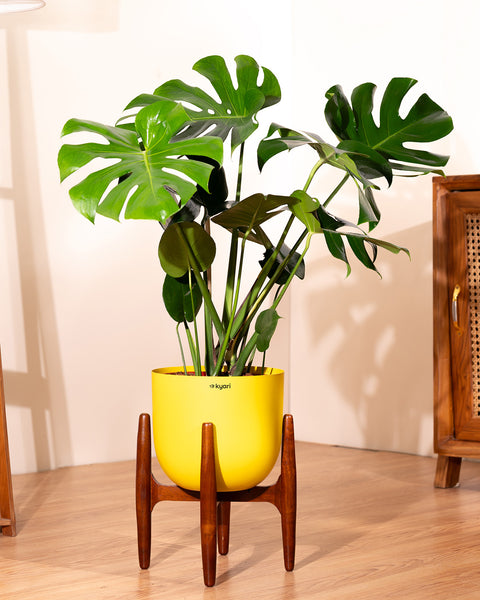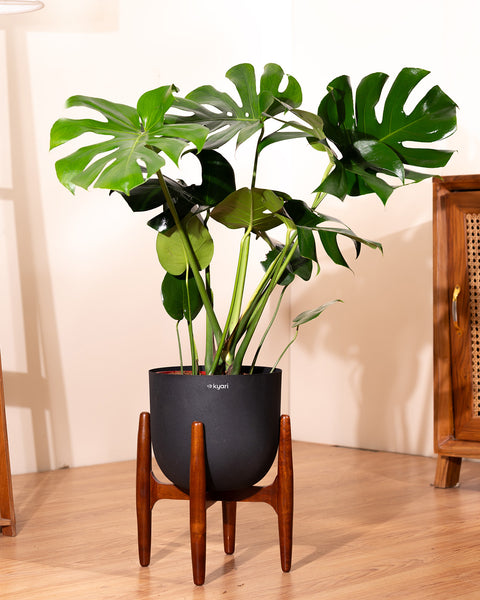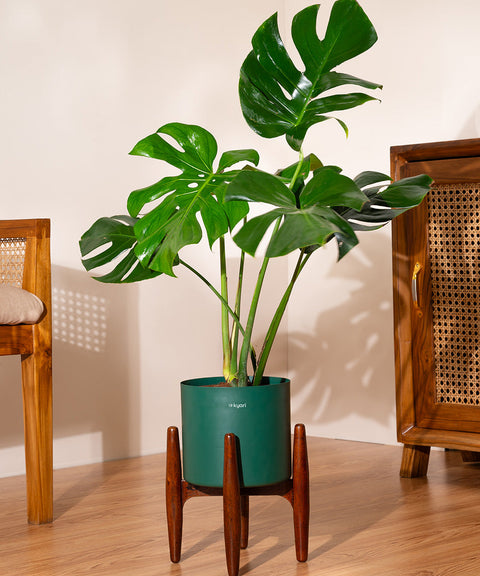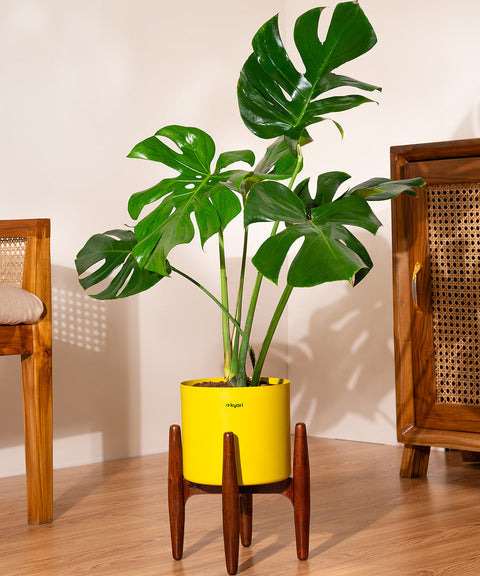About
Calathea Trioster
The Triostar, with its dazzling blend of green, cream, and pink leaves, is a show-stopping houseplant that adds a burst of colour to any indoor space. Its unique foliage makes it a favourite among plant enthusiasts.
Origin
Native to the tropical rainforests of Brazil.
Light
Prefers bright, indirect light. Direct sunlight can cause the leaves to scorch, while low light can result in less vibrant colors. Place it in a well-lit area away from direct sunlight to maintain its striking hues.

Water
Water when the top inch of soil feels dry. The Triostar prefers consistently moist soil but is susceptible to root rot if overwatered. Ensure the pot has adequate drainage and avoid letting the plant sit in standing water.
Humidity
Thrives in high humidity and appreciates regular misting. The Triostar can be sensitive to dry air, so maintaining higher humidity levels is essential for its vibrant foliage
The Triostar, with its flamboyant pink, white, and green leaves, is like the fashion icon of the plant world. In Brazil, where it originates, it’s often called the “supermodel plant” for its stunning looks. Imagine having a leafy fashionista in your home, always dressed to impress and turning heads with its vibrant colors!
Placement
The Triostar is known for its vibrant energy and striking appearance. Here’s where to place it
Adds a touch of color and improves air quality. Position it near a window with indirect light to showcase its vibrant leaves
Enhances focus and creativity. The unique foliage can brighten up a workspace and create a more inspiring environment
Thrives in the high humidity environment. The bathroom's humidity can help keep the plant's leaves looking lush and healthy.
Frequently Asked Questions
The ideal temperature for a Triostar is between 60°F to 80°F (16°C to 27°C). It prefers warm
Water your Triostar when the top inch of soil feels dry. Adjust the frequency based on light exposure and indoor climate
Triostars prefer bright
Place your Triostar in a bright
Trim off any dead or yellowing leaves and ensure the plant is free from dust. Regular cleaning helps the plant photosynthesize effectively and keeps it looking its best.
Curling leaves can be caused by low humidity or underwatering. Increase humidity and ensure consistent watering
Brown leaf edges indicate low humidity or inconsistent watering. Increase humidity and ensure regular
Keep the plant clean by wiping the leaves and inspecting regularly for pests. Use insecticidal soap if necessary. Triostars can be susceptible to spider mites and mealybugs.
Faded leaf colors can indicate insufficient light. Move the plant to a brighter location with indirect light.
Yellow leaves can indicate overwatering. Allow the soil to dry out between waterings and ensure the pot has adequate drainage.








 Limited Time Deal
Limited Time Deal
 BYOB - Small Plants
BYOB - Small Plants




















